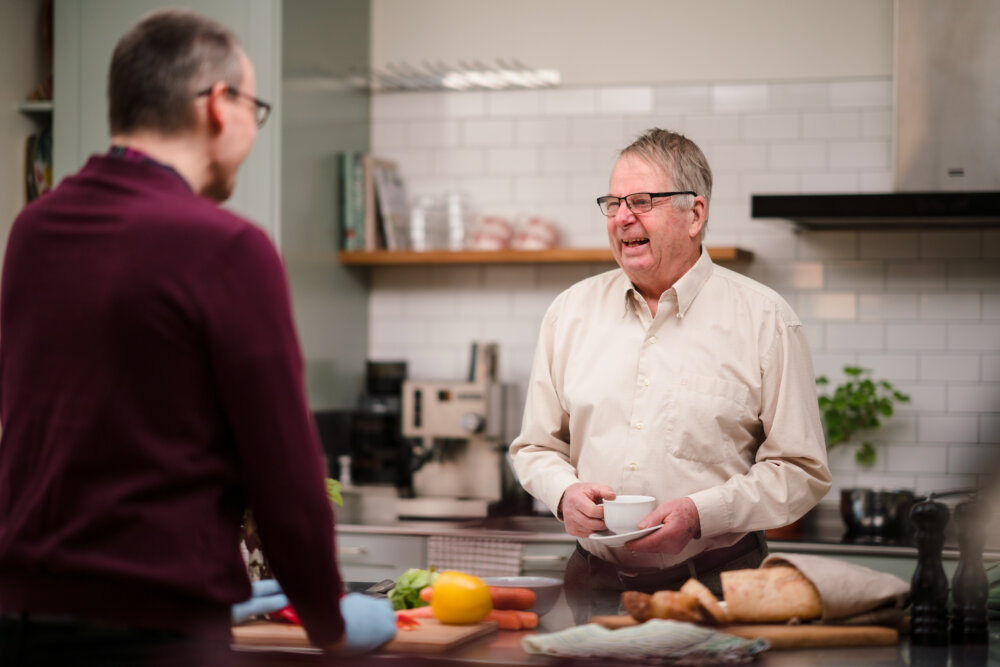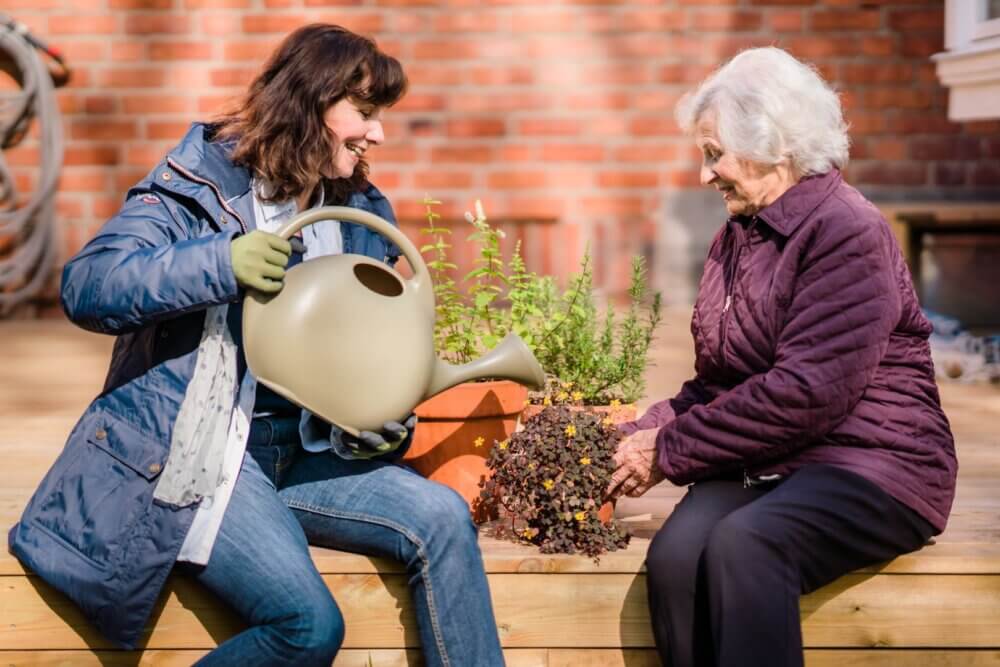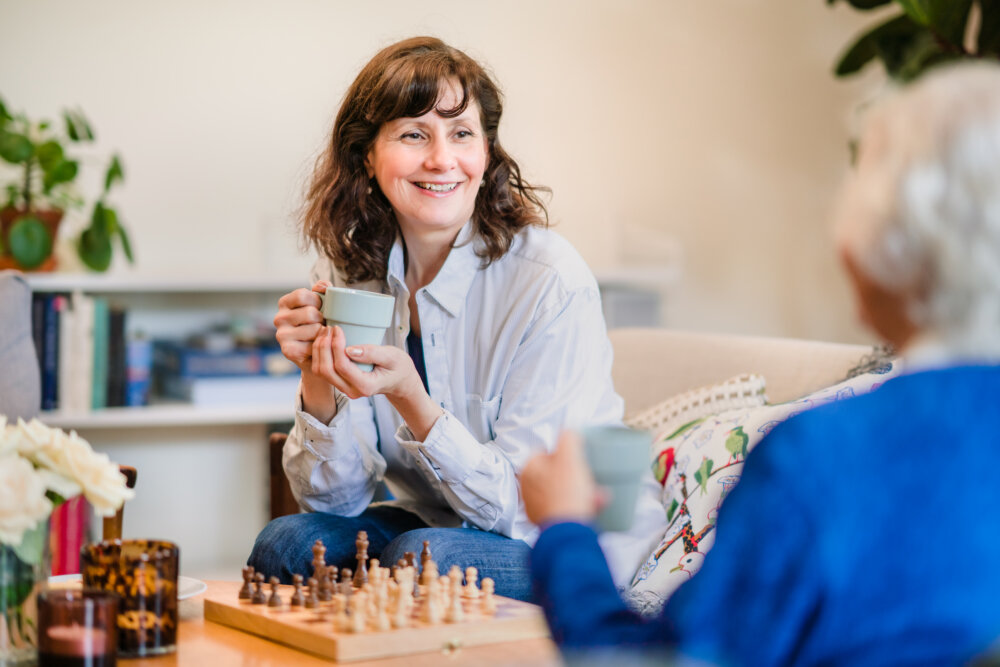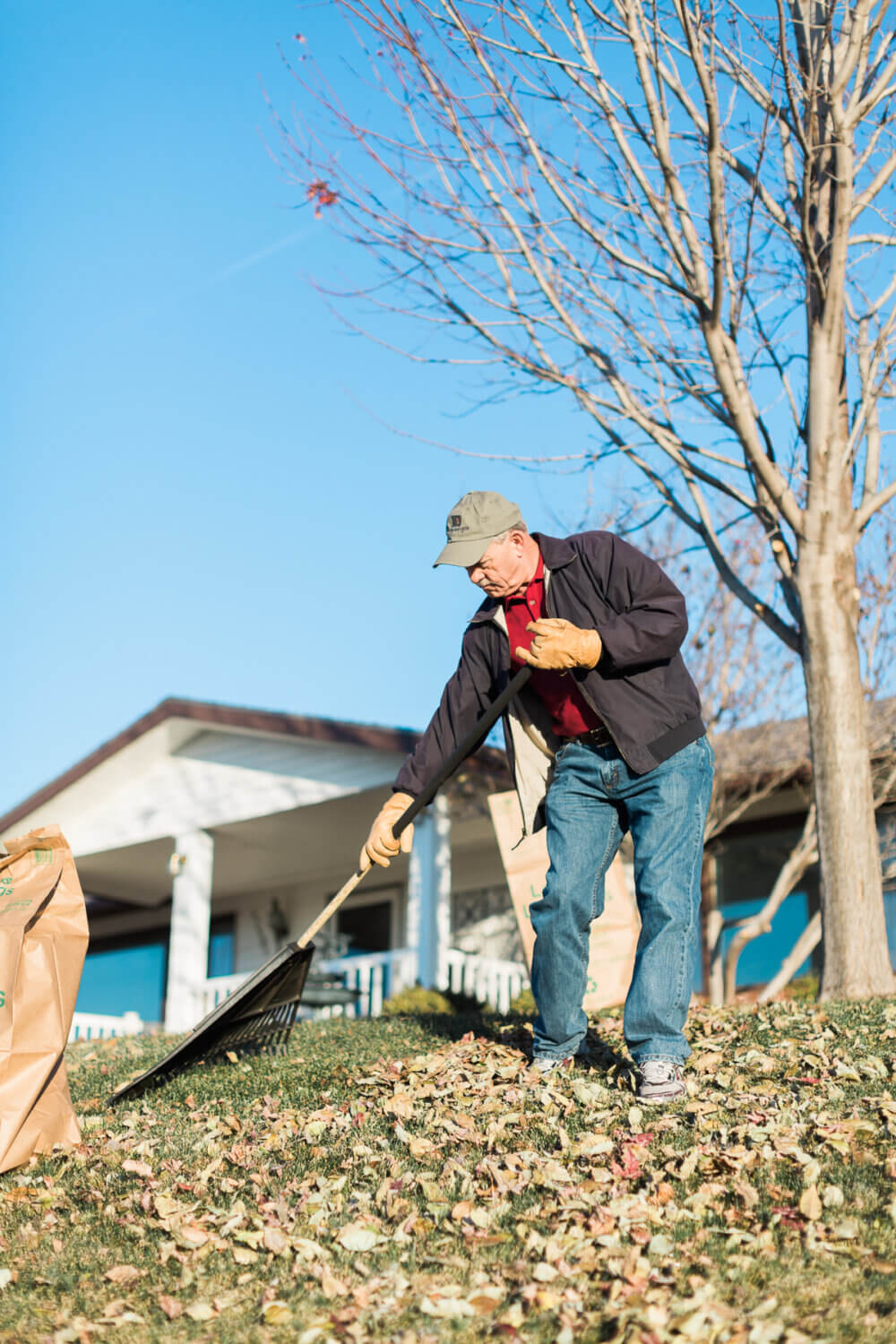Keeping warm and well this winter
As we get older it is especially important to keep warm in these colder months as winter bugs can affect us more than they used to.
There are a few things that we can do to keep ourselves warm and stay well.
Eat well
During the winter months we tend to spend more time indoors, the dark and sometimes miserable weather doesn’t keep us very motivated to do much and this can include preparing and making meals. It is important to eat a good range of foods to provide nutrients and vitamins. Try to include fruit and vegetables in your daily diet if you can, they don’t have to be fresh, tinned and frozen can be just as good. These are also helpful to keep your cupboard and freezer stocked up in case you can’t get to shops due to illness or bad weather. You could even do your food shopping online and get it delivered to your door.
Warm drinks and hot food can help to keep warm and stay hydrated during the day.
The British Heart Foundation has put together some good advice on eating well throughout the winter, which you can read more https://www.bhf.org.uk/informationsupport/heart-matters-magazine/nutrition/healthy-eating-winter-tips

Stock up
Winter weather can be very unpredictable and can stop you from getting out and about, it’s a good idea to try and be prepared.
Think about stocking up on cold remedies as well as food in case you are unable to leave your home. Many pharmacies offer free NHS perscription delivery service to your home. Below are some useful links that may help you with this:
http://www.boots.com/prescription-support/prescription-delivery-service
http://well.co.uk/prescriptions/prescription-delivery/
http://www.lloydsdirect.co.uk/delivery-and-collection
It’s a good idea to have some food and drink that doesn’t require any electricity or heat to prepare. A bottle of water could be handy if your water supply is interrupted, also torches and spare batteries can be helpful in case of a power cut.
In the event of a power cut, call 105. You can report this to them and get information and advice if there is one in your area.
Keep moving
There’s no one-size-fits-all approach when it comes to keeping moving, so it’s important you do something that feels right but importantly feels safe and comfortable for you. A little bit of activity now and then is a great way to help you keep warm, as well as help you maintain strength and mobility. Moving more also helps your thinking skills like problem solving, decision making and remembering words and facts. So, if you can, try not to sit still for more than an hour at a time. If that’s not possible, try to move your arms or legs for a few minutes.

Wrap up well
If you’re heading out, make sure you take some extra layers – even if you don’t think you’ll need them immediately. It’s a good idea to be prepared because the temperature can drop significantly when the sun goes in. Accessories such as gloves, a hat and scarf can help to keep in the warmth, our bodies react to the cold by redirecting our blood away from our hands and feet and towards our vital organs, so part of keeping our hands and feet warm is about keeping our whole body warm.
Wearing several thin layers will keep you warmer than wearing one thick layer, as layers trap warm air between them. Wearing plenty of layers is the best way to keep warm in winter.
Keeping warm indoors
If you’re sitting down, wrap up with a shawl or blanket. Air is cooler at ground level – so you could even pop your feet up on something. If you struggle to stay warm in bed, try wearing some warmer layers. If it’s particularly cold, thermal underwear and bed socks are a good idea – even a hat can really help you keep warm. Use a hot water bottle, heat bag or an electric blanket to warm the bed – but never use a hot water bottle and an electric blanket together. Check if your electric blanket can be kept on all night or whether it’s only designed to warm the bed up before you get in. If you have any continence difficulties, talk to your doctor before using one.
A hot drink and warm food can also help to keep warm.

Stop the spread of germs
Regularly washing your hands with soap and water is one of the best ways to stop germs spreading and reducing the risk of illness. If you’re out and about, carry hand sanitiser in case you can’t access a bathroom to wash your hands.
If its not too cold you can leave windows ajar when meeting people indoors. Avoid coming into close contact with people that are unwell.
The Welsh Government have some advise regarding this www.gov.wales/people-wales-reminded-how-they-can-help-stop-spread-respiratory-infections
When out and about, take extra care
Its lovely to be able to go out and get some fresh air during the colder months, especially if the weather has been wet for a while. If it has been raining, take care on fallen wet leaves. During the winter months ice and slow can really increase your risk of a fall.
If you are going outdoors, non-slip study shoes are helpful.
If driving allow extra time for journeys and other advice from The AA http://www.theaa.com/driving-advice/seasonal/winter
